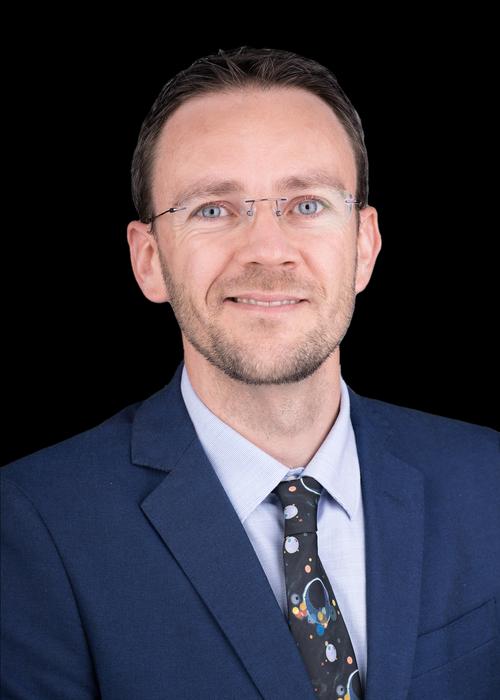East Hanover, NJ – August 21, 2024 – Kessler Foundation researchers have published a new clinical study investigating the effects of robotic postural stand training combined with spinal cord epidural stimulation (Stand-scES) on trunk control in individuals with high-level spinal cord injury (SCI). The open access article, “Effects of Robotic Postural Stand Training with Epidural Stimulation on Sitting Postural Control in Individuals with Spinal Cord Injury: A Pilot Study” (doi.org/10.3390/jcm13154309) was published in the Journal of Clinical Medicine on July 24, 2024.

Credit: Kessler Foundation
East Hanover, NJ – August 21, 2024 – Kessler Foundation researchers have published a new clinical study investigating the effects of robotic postural stand training combined with spinal cord epidural stimulation (Stand-scES) on trunk control in individuals with high-level spinal cord injury (SCI). The open access article, “Effects of Robotic Postural Stand Training with Epidural Stimulation on Sitting Postural Control in Individuals with Spinal Cord Injury: A Pilot Study” (doi.org/10.3390/jcm13154309) was published in the Journal of Clinical Medicine on July 24, 2024.
Improvement of trunk postural control, and particularly trunk stability, is recognized as one of the key rehabilitative goals as well as one of the top priorities indicated by individuals living with SCI. As per the study results, the robotic postural stand training protocol with Stand-scES led to relevant trunk control improvements in the upright standing position. However, it did not promote statistically significant changes or large effects in any of the sitting trunk control outcomes considered for analysis in a population of high-level motor complete SCI individuals.
According to lead author Enrico Rejc, PhD, consulting researcher in the Tim and Caroline Reynolds Center for Spinal Stimulation at the Foundation, “Our study indicates that while robotic postural stand training with epidural stimulation significantly enhances trunk control during standing tasks, this improvement does not automatically extend to sitting. This posture-specific response underscores the complexity of motor recovery in individuals with high-level spinal cord injuries.”
Future studies should investigate, prospectively, whether, and to what extent, posture specificity plays a role in determining activity-based training-induced neural plasticity and motor recovery, asserted Dr. Rejc. “The lack of significant changes in sitting trunk control following this standing-focused training suggests that rehabilitation strategies should be tailored to target specific postures,” he said, adding, “Future research should explore combined training approaches to address both sitting and standing postural challenges in this population. This approach may provide a positive balance between specificity and variability of the sensory-motor inputs for motor recovery.”
The study included the methodological approach, where six participants with cervical or high-thoracic motor complete SCI underwent approximately 80 sessions of robotic postural stand training with Stand-scES. The training included dynamic and static standing tasks with trunk perturbations but did not involve specific sitting exercises.
This research was supported by the New York State Spinal Cord Injury Research Board under Grants C31290GG and C37719GG, Kessler Foundation, the Christopher and Dana Reeve Foundation, and the Leona M. and Harry B. Helmsley Charitable Trust.
About Kessler Foundation
Kessler Foundation, a major nonprofit organization in the field of disability, is a global leader in rehabilitation research. Our scientists seek to improve cognition, mobility, and long-term outcomes, including employment, for adults and children with neurological and developmental disabilities of the brain and spinal cord including traumatic brain injury, spinal cord injury, stroke, multiple sclerosis, and autism. Kessler Foundation also leads the nation in funding innovative programs that expand opportunities for employment for people with disabilities. For more information, visit KesslerFoundation.org.
Press Contact at Kessler Foundation:
Deborah Hauss, DHauss@kesslerfoundation.org
Stay Connected with Kessler Foundation
X (formerly known as Twitter) | Facebook | YouTube | Instagram | SoundCloud
Journal
Journal of Clinical Medicine
Method of Research
Randomized controlled/clinical trial
Subject of Research
People
Article Title
“Effects of Robotic Postural Stand Training with Epidural Stimulation on Sitting Postural Control in Individuals with Spinal Cord Injury: A Pilot Study”
Article Publication Date
24-Jul-2024



